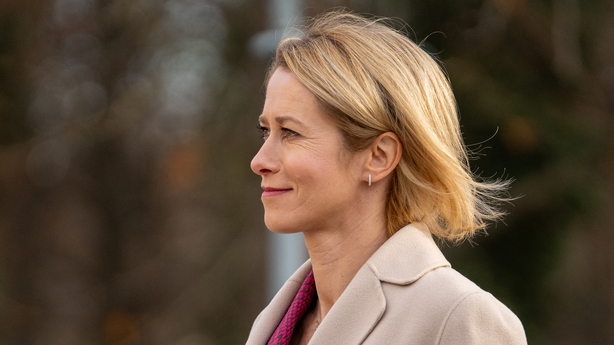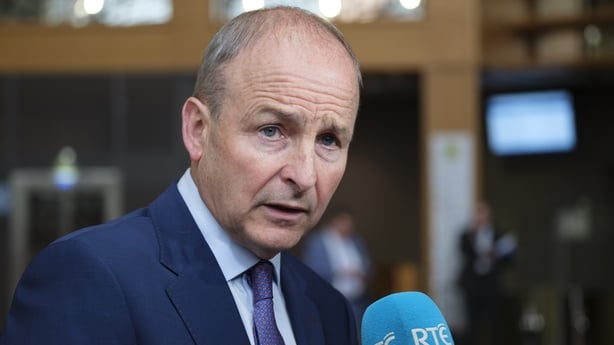The European Union should be ready to ease sanctions on Syria if the country's new leadership takes "positive steps" to establish an inclusive government, and respect women's and minority rights, EU foreign policy chief Kaja Kallas has said.
Many EU foreign ministers, including Tánaiste Micheál Martin, are attending a meeting in Brussels which will be dominated by the situation in the Middle East, in particular the fall of the Assad regime in Syria, and Russia's ongoing attacks on civilian infrastructure in Ukraine.
Mr Martin is likely to brief his counterparts on Israel's decision to shut its embassy to Ireland, which was announced yesterday afternoon.
It will be the first meeting of foreign ministers hosted by Kaja Kallas, the former Estonian prime minister who succeeds Josep Borrell as the EU's foreign policy chief.
She inherits a chaotic geopolitical situation in Europe’s neighbourhood, with Russia intensifying its attacks on Ukraine’s civilian infrastructure, and the Middle East remaining highly charged.

Ms Kallas said she had sent a senior diplomat to meet officials from Hayat Tahrir al-Sham (HTS), the Islamist group which has emerged as the ruling power in Damascus since toppling Bashar al-Assad just over a week ago.
Mr Assad fled to Russia last week following the rebel offensive that captured the capital on 8 December.
Mr Assad's ouster has presented the 27-nation European Union and other outside powers with urgent questions over how to deal with Syria's new leaders.
On the one hand, EU leaders have welcomed the downfall of Mr Assad, having long condemned his rule and imposed wide-ranging sanctions on Syria in response.
However, they are also faced with a dilemma over how to deal with HTS, which has been designated as a terrorist organisation by the United Nations.
The group was an al-Qaeda affiliate until it severed ties with the jihadist network in 2016.
In 2020, the EU accused HTS of unlawfully detaining, torturing and murdering civilians living in areas under the group's control and said this may amount to war crimes or crimes against humanity.
"We want to see no extremism, no radicalisation," Ms Kallas said, adding that HTS was "saying the right things" so far but the group would be judged on its actions.
Ms Kallas said she had asked EU ministers whether they were ready to adapt sanctions policy if they saw "positive steps, not the words, but actual steps and deeds" from the new leadership.
"We need to have ... the plan ready when we see the steps ... to act positively in this regard to help the development of Syria," she said.

Current EU sanctions include bans on arms exports to Syria and oil imports from the country, as well as a ban on investment in the Syrian oil industry and a freeze on any Syrian central bank assets in the EU.
Ms Kallas has signalled she wants to stay in close contact with local actors, namely Turkey and Israel.
Diplomats have also said Ms Kallas is keen to have a meeting of the EU-Israel Association Council soon, so that member states can raise concerns directly about Israel’s conduct in the Gaza War.
It is understood there would also be a parallel high-level meeting with the Palestinian Authority.
Ahead of the meeting the Tánaiste said recent developments in the Middle East should not distract foreign ministers from the catastrophic humanitarian situation in Gaza.
Micheál Martin said he would be calling for an immediate ceasefire, the release of hostages and the massive scaling up of humanitarian aid into Gaza.
Additional reporting Reuters






